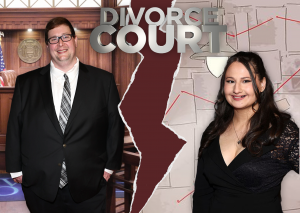Just like U.S. history and poetry, most of us were brought up on a watered-down idea of gender and sex that leaves a lot of unanswered questions. Luckily, a few Bradley students who prefer to remain anonymous and don’t identify with the gender they were assigned at birth shared their perspectives on their gender, or lack thereof.
Person 1
Pronouns: They/them/theirs, he/him/his, or ze/zir/zirs
What is your gender identity and what does it mean to you personally? I am agender. I feel as though I have no gender at all. Assigning a gender to myself feels as silly as assigning a gender to a sack of potatoes, or maybe a tree.
When did you figure out your gender identity and how has knowing changed the way you experience the world since? I had felt genderless for a long time, but I didn’t realize it was different from what many people felt until sophomore year in college. I did some research and talked with some friends and found out that agender was the label I felt most comfortable with.
Once I put a name to my gender, it was easy to see how I felt that way for a long time—I can remember being in second grade and wondering why I didn’t feel right being split into boys and girls. I always felt uncomfortable with people calling me “she” or referring to me as a girl, but now I understand why. I feel more confident in who I am as a person.
What’s something you wish more people knew about your gender identity or about gender as a whole? I wish people understood that gender was a spectrum (well, it’s more complicated than that), but there are so many other things outside “boy” and “girl.” I know so many people — like me! — who felt so much more comfortable with themselves once they learned that they don’t have to be a part of that binary. I think that people could feel so much more comfortable with themselves and more understanding of each other if they took that knowledge to heart.
Person 2
Pronouns: They/them/theirs
What is your gender identity and what does it mean to you personally? Nonbinary. I don’t feel like male or female. I fit somewhere in between and it moves slightly day to day.
When did you figure out your gender identity and how has knowing changed the way you experience the world since? I truly discovered my gender last year. I have found a lot of freedom in not having to fit a gender. Being nonbinary allows me to focus on being myself without being concerned with societal expectations.
What’s something you wish more people knew about your gender identity or about gender as a whole? I wish people understood that sex and gender are two separate identities, and that they do not relate to one another.
Person 3
Pronouns: Xe/xyr/xyrs, ae/aer/aers, it/its, and any other non-he/she sets
What is your gender identity and what does it mean to you personally? I am genderless and nonbinary, but it feels like it’s a little fluid sometimes. I call myself nonbinary because sometimes I feel almost like there are the “echoes” of other genders there, but I’m still always genderless. It’s more like a hint of another gender floating through, like a ghost.
To me, it means I feel slightly different things at different times, but my essence is still the same, and understanding my gender as somewhat fluid helps me accept the way it feels on different days. Being genderless, to me, means I don’t have a specific set of ideals, goals, actions or aesthetics to go toward (especially since there are few to no role models who are genderless).
When did you figure out your gender identity and how has knowing changed the way you experience the world since? I figured out I am nonbinary when I was 19. Now, I am much more aware of gender and perceived gender roles in media, in the way people talk, and even in smaller media like in various advertisements.
What’s something you wish more people knew about your gender identity or about gender as a whole? I want people to know that understanding gender can be strange and hard for the person discovering it, and patience is needed from both the person discovering it and the surrounding people in that person’s life. When someone says one thing about their gender but later realizes something different is true, it’s important for friends and family to support the person, even if they’re unsure of what the questioning person is going through or what they are. Also, gender is not a big deal. Discovering that your gender is not female, male or any other doesn’t mean everything else about the person, or anything else, is changing. It just might mean that you understand and relate to things in a different way.
Person 4
Pronouns: he/him/his they/them/theirs
What is your gender identity and what does it mean to you personally? My gender identity
is gender fluid. What it means to me is that, as a person, I am not defined by just one single
gender or by society’s definition of gender. I feel like I am free to express myself in any way that
I want through my gender identity.
When did you figure out your gender identity and how has knowing changed the way you
experience the world? I figured out I was gender fluid right before coming to college. I did a lot
of research on different kinds of gender identities and happened to stumble upon the term gender
fluid. It sounded so much like how I felt, even when growing up. I now see people as more than
just their physical appearance. I no longer see clothing as gender- specific, rather for anyone who
wants to wear them. I’ve learned to love others and myself so much more.
What’s something you wish more people knew about your gender identity or about gender
as a whole? I wish people were more sensitive of the importance of pronouns and making sure
they address others properly. I wish people saw me as more than just a cisgendered boy, because I am. I’m as multifaceted as everyone else on this big planet, and it’s important not to generalize
people.




